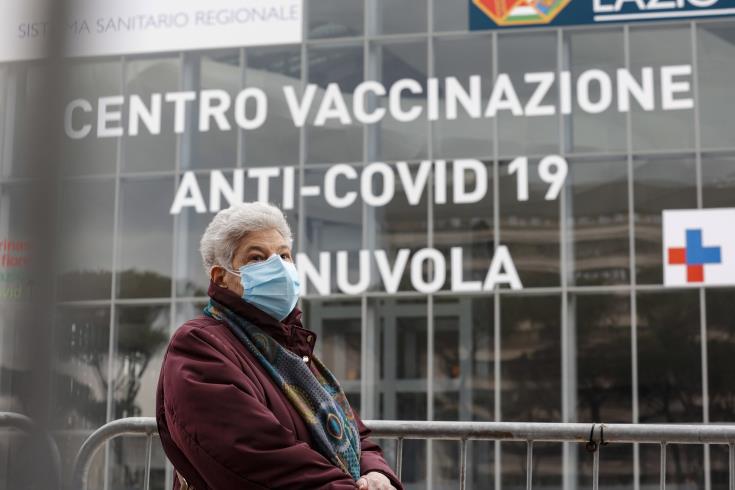Transmission of coronavirus from vaccinated individuals appears to be declining, according to a new report from the European Centers for Disease Control, ECDC, published today, examining the risk of transmitting SARS-CoV-2 from vaccinated individuals and previously infected individuals.
In particular, after the presentation of the report, the director of ECDC Andrea Amon stated that "we also welcome the positive first indications that the risk of transmission seems to be reduced in those who have been vaccinated" and clarified that "although the impact of new mutations, which cause concern "Transmission patterns need to be closely monitored. We still expect the overall number of infections to decrease significantly as vaccination coverage increases."
In particular, in the technical report, the ECDC examines the data on the extent to which previous SARS-CoV-2 infection or vaccination COVID-19 prevents further transmission from infected individuals to sensitive contacts.
With regard to transmission from previously infected individuals, the following key points can be drawn:
- No study directly measured the transmission of SARS-CoV-2 from people who became infected again in their contacts. However, there was evidence that re-infections are rare.
- Studies in people who have been treated for 5 to 7 months after recovery from SARS-CoV-2 infection have estimated that the protective effect of previous SARS-CoV-2 infection is very high (81% - 100%) during this period .
- It should be noted, however, that many of these studies were performed prior to the emergence of SARS-CoV-2 mutations of concern and there is weak evidence that immunity induced to previously released SARS-CoV-2 strains may not be has the same effect against mutations, in particular B.1.351 and P.1.
Among vaccinated individuals, the ECDC review showed the following:
- Data on the effect of vaccination on transmission risk are available from a single study, which suggests that vaccinating a household member reduces the risk of infection in susceptible household members by at least 30%.
- There is evidence that vaccination significantly reduces symptomatic or asymptomatic infection in vaccinated individuals, although the effectiveness of the vaccine varies depending on the vaccine product and the vaccination group.
- There is also some evidence of lower viral load and shorter transmission duration in vaccinated individuals compared to non-vaccinated individuals, which could translate into reduced transmission.
- Many of the studies on vaccine efficacy have been performed prior to the emergence of worrying mutations in SARS-CoV-2 and there is some evidence that vaccine efficacy could be reduced for some of the mutations, in particular B.1.351 and possibly P .1.
According to the ECDC, "larger groups with previous SARS-CoV-2 infection and vaccination are required to better assess the size and duration of protection against re-infection and symptomatic disease, as well as the effect of transmission protection."
